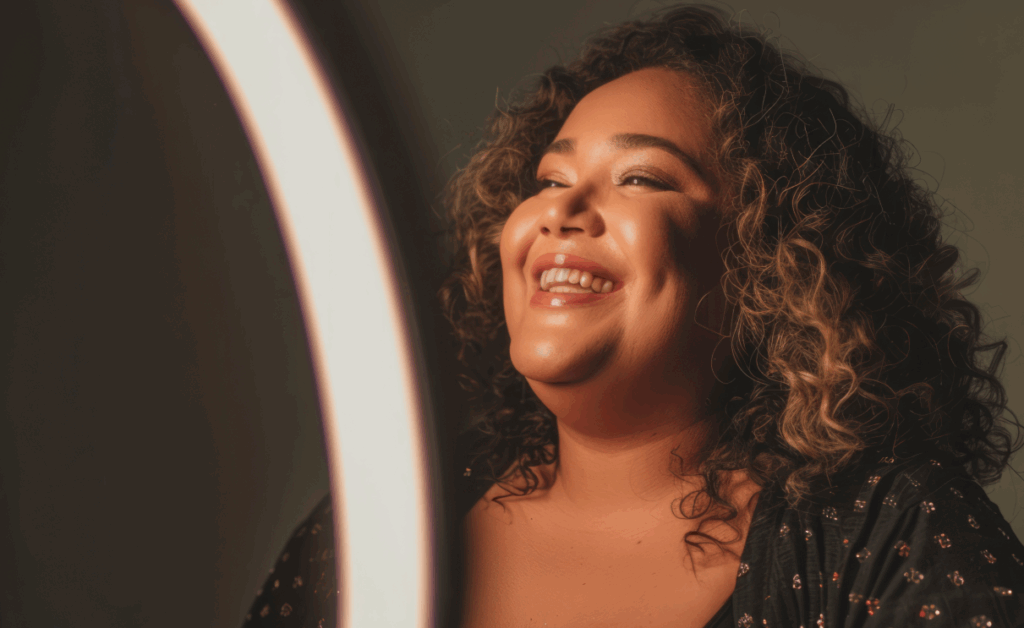You’ve nailed the phone screening, aced the skills assessment, and your resume sparkles like a diamond. You walk into that conference room, heart pounding with excitement, ready to land your dream job. The interviewer extends their hand, you flash what you think is your winning smile, and then… something shifts in their expression.
The Uncomfortable Truth About First Impressions
Let’s be real for a moment. We all know that first impressions matter, but here’s what no one talks about at career workshops: your smile is often the first thing people notice, and it can literally make or break opportunities before you even open your mouth to speak.
I learned this the hard way during my own job hunting journey a few years back. I was interviewing for a marketing position at a tech startup – you know, one of those cool companies with ping pong tables and kombucha on tap. I felt confident, prepared, and ready to crush it. But something was off during the interview. The hiring manager seemed distracted, and I couldn’t shake the feeling that they weren’t really listening to my carefully rehearsed answers.
It wasn’t until months later, when I finally addressed some long-overdue dental concerns, that I realized what might have been happening. When I looked in the mirror after that dental cleaning and saw my brighter, healthier-looking smile, it hit me like a ton of bricks. Had my oral health been sending the wrong message all along?
The Science Behind the Smile Bias
Here’s where things get interesting (and a little uncomfortable). Research from various psychology and workplace behavior studies suggests that people make judgments about others within milliseconds of meeting them. And guess what features play a huge role in those split-second decisions? Yep – teeth and smile.
Think about it from an evolutionary perspective. Throughout human history, healthy teeth have been associated with good health, vitality, and the ability to take care of oneself. While we’re obviously way past the caveman days, these subconscious associations still linger in our modern brains.
The Job Interview Reality Check
Let’s break down what’s really happening in that interview room. You’re sitting across from someone whose job it is to evaluate you as a potential colleague, team member, and representative of their company. They’re looking for signs of professionalism, attention to detail, self-care, and confidence.
Whether we like it or not, oral health often gets interpreted as a reflection of these qualities. Someone with visibly neglected teeth might unconsciously signal to an interviewer that they don’t prioritize self-care or attention to detail – qualities that could translate to work performance.
Now, before you panic, let me be clear: this isn’t about having perfect Hollywood teeth or spending thousands on cosmetic procedures. It’s about basic oral hygiene and the confidence that comes with taking care of yourself.
Beyond the Interview Room: Networking and Professional Relationships
The impact of your smile doesn’t end when you land the job. Think about all the professional interactions where your smile plays a role:
Networking events: That awkward small talk becomes even more challenging when you’re self-conscious about your smile. I’ve watched colleagues avoid laughing at jokes or cover their mouths when speaking, missing out on genuine connection opportunities.
Client meetings: Whether you’re in sales, consulting, or any client-facing role, your smile is part of your professional toolkit. It conveys approachability, trustworthiness, and competence.
Office relationships: From casual coffee chats to team celebrations, feeling confident about your smile affects how you interact with colleagues. It’s hard to be the enthusiastic team player when you’re worried about what people see when you laugh.
Video calls: In our increasingly remote world, close-up video calls put our smiles front and center. That grainy laptop camera isn’t doing anyone favors, but poor oral health becomes even more noticeable on screen.
The Confidence Connection
Here’s what I think is the most important part of this whole conversation: it’s not really about what other people think. It’s about how YOU feel.
When you’re not confident about your smile, it affects everything. You might:
- Hold back from speaking up in meetings
- Avoid networking opportunities
- Feel less comfortable in social professional settings
- Project less enthusiasm and energy
- Miss out on building genuine relationships
I remember feeling like I was holding back parts of my personality because I was self-conscious. I’d give tight-lipped smiles in photos, avoid laughing too heartily at colleagues’ jokes, and generally felt like I was presenting a dimmed version of myself.
Practical Steps for Real People
Okay, so we’ve established that oral health matters for professional success. But what can you actually do about it without breaking the bank or turning into a dental perfectionist?
Start with the basics: This might sound obvious, but consistency is key. Regular brushing, flossing, and using mouthwash create a foundation that prevents bigger issues down the road. Set reminders on your phone if you need to – whatever it takes to build the habit.
Regular check-ups matter: I know, I know. Nobody enjoys going to the dentist. But those routine cleanings and check-ups catch small issues before they become big, expensive, and visible problems. Think of it as professional maintenance, like getting your car serviced.
Address the obvious stuff first: If you have visible plaque buildup, persistent bad breath, or other noticeable issues, tackling these first will give you the biggest confidence boost for your investment.
Watch what you consume: Coffee, wine, and sugary snacks are smile saboteurs. I’m not saying give up your morning latte (let’s be realistic), but being mindful of staining and harmful substances helps maintain what you’ve got.
Consider your habits: Do you chew ice? Bite your nails? Use your teeth as tools? These seemingly harmless habits can cause long-term damage that affects both health and appearance.
The Money Talk: ROI on Oral Health
Let’s talk dollars and cents for a minute. Investing in oral health might seem like a luxury when you’re between jobs or early in your career, but consider it from a return-on-investment perspective.
The cost of basic preventive care – regular cleanings, good oral hygiene products, addressing small issues early – is minimal compared to the potential career impact. If better oral health boosts your confidence in interviews, networking situations, and daily professional interactions, it could literally pay for itself through better job opportunities, promotions, or business relationships.
Compare that to the cost of major dental work down the road, or the intangible cost of missed opportunities due to lack of confidence. When you look at it that way, taking care of your oral health is actually a smart financial decision.
Real Talk: It’s Not About Perfection
I want to be super clear about something: this isn’t about achieving some unrealistic standard of dental perfection. We’re not all going to have celebrity smiles, and that’s totally fine.
This is about basic care and the confidence that comes with knowing you’re taking care of yourself. It’s about not letting preventable oral health issues hold you back from being your best professional self.
Some of the most successful people I know don’t have perfect teeth, but they have healthy, clean smiles and the confidence that comes with good self-care. That confidence is magnetic and professional.
The Bigger Picture: Self-Care as Professional Development
Here’s my final thought on this whole topic: taking care of your oral health is really about taking care of yourself, and self-care is a form of professional development.
When you feel good about yourself – when you’re not worried about bad breath during close conversations, when you can smile genuinely in professional photos, when you can laugh freely at networking events – you show up differently in professional settings.
You’re more present, more confident, and more authentically yourself. And authenticity, combined with competence, is pretty much the secret sauce for professional success.
Making It Sustainable
The key to all of this is making oral health care a sustainable part of your routine, not a source of stress or perfectionism. Start small, be consistent, and focus on progress rather than perfection.
Set up systems that work with your lifestyle. If you’re always rushing in the morning, maybe evening oral care is your focus time. If you travel frequently for work, invest in good travel-sized products. If you’re prone to forgetting, use apps or reminders.
The goal is to create habits that support both your health and your professional confidence without adding stress to your already busy life.
Your Next Steps
So, what’s your next move? Maybe it’s scheduling that cleaning you’ve been putting off. Maybe it’s upgrading your oral care routine. Maybe it’s simply paying more attention to how your oral health affects your professional confidence.
Whatever it is, remember that small, consistent actions often lead to big results over time. Your future professional self will thank you for the investment you make today.
Because at the end of the day, your smile isn’t just about health – it’s about showing up as your best, most confident self in every professional opportunity that comes your way.

Disclaimer: Thanks for reading — from all of us at First News US. The information provided in this article is for general informational and lifestyle purposes only and is not intended as professional medical, dental, or career advice. Individual experiences and results may vary. For specific concerns about oral health, please consult with qualified dental professionals. For career guidance, consider speaking with career counselors or professional development experts. The author and publisher are not responsible for any actions taken based on the information provided in this article.
Sources and References:
- American Academy of Cosmetic Dentistry consumer research
- Various workplace psychology and professional development studies
- Career development and professional networking research



